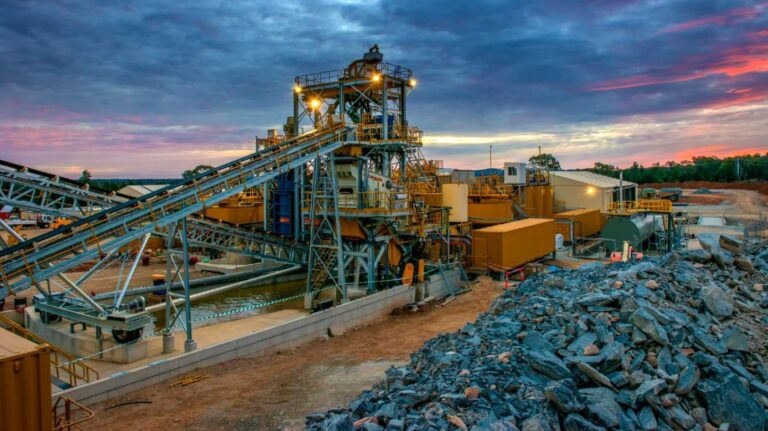A new international partnership between the UK and Canada aims to enhance the resilience and sustainability of critical minerals supply chains vital to modern technologies, clean energy and national security.
Announced last week, five research projects will share a £1m investment from the UK’s International Science Partnerships Fund, awarded through UK Research and Innovation’s Natural Environment Research Council (NERC).
Supplementary funding of approximately CAD$250,000 (£145,000) from the Natural Sciences and Engineering Research Council of Canada (NSERC) will enable international collaborations, bringing the total investment to more than CAD$4m (£2.32m).
The funded projects will explore ways to clean up mine water, identify and extract rare earth minerals crucial for permanent magnets, study volcanogenic metal deposits, and investigate co-extraction techniques for critical metals with gold and copper.
A flagship initiative, Critical Minerals for Resilience and Sustainability (MINERS), will specifically focus on modelling critical mineral flows across the UK and Canada to assess their resilience to supply chain shocks, while also exploring opportunities to embed a circular economy by recycling and reusing minerals.
As global demand for critical minerals is forecast to quadruple by 2040, the initiative reflects growing concerns over supply chain vulnerabilities and international competition for resources essential to technologies ranging from smartphones to wind turbines, semi-conductors and defence systems.
READ MORE: EU and Canada countermeasures to US steel tariffs announced
Professor Alejandro Adem, president of NSERC, highlighted the supply chain impact, noting that international partnerships are “essential to tackling global challenges such as critical mineral security”, adding that combining UK and Canadian expertise will help “accelerate innovation and advance sustainable solutions to drive economic growth, resilience and environmental responsibility”.
In parallel, the research projects will support efforts to reduce the environmental footprint of mining, for example through mine reclamation, critical mineral recycling and improved exploration tools.
Projects include developing new low-cost techniques to remediate contaminated mine water and recover dissolved metals for reuse, as well as building models for rare earth element deposits in Saskatchewan to diversify magnet supply chains for electric vehicles and renewable energy.
Professor Louise Heathwaite, executive chair of NERC, said the research would help safeguard vital mineral supplies while driving new technologies, supporting economic growth and protecting security interests.
“These partnerships will build on our key collaboration with Canada, enhancing coordination and sharing knowledge and skills,” she said. “We currently rely on critical minerals for our cars, our phones, our energy, our defence and many more areas of life.”
The initiative follows a landmark UK-Canada critical minerals agreement signed in March 2023, and forms part of a broader strategy to future-proof essential mineral supply chains while balancing environmental and social responsibilities.







